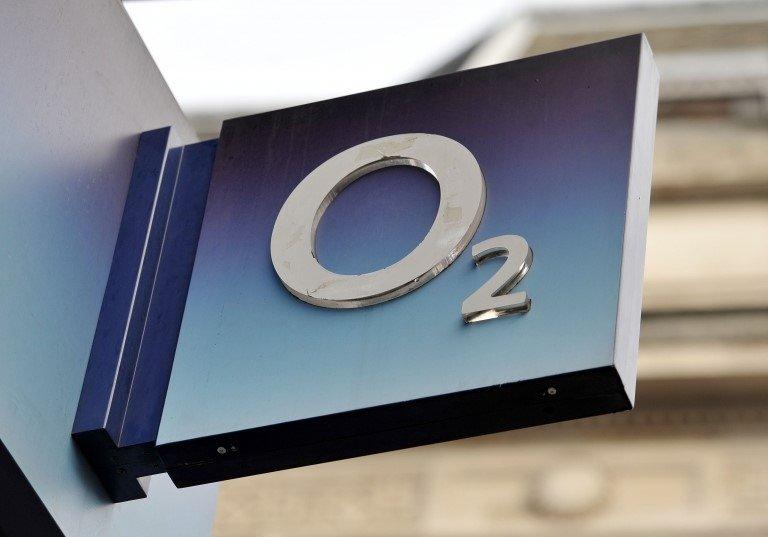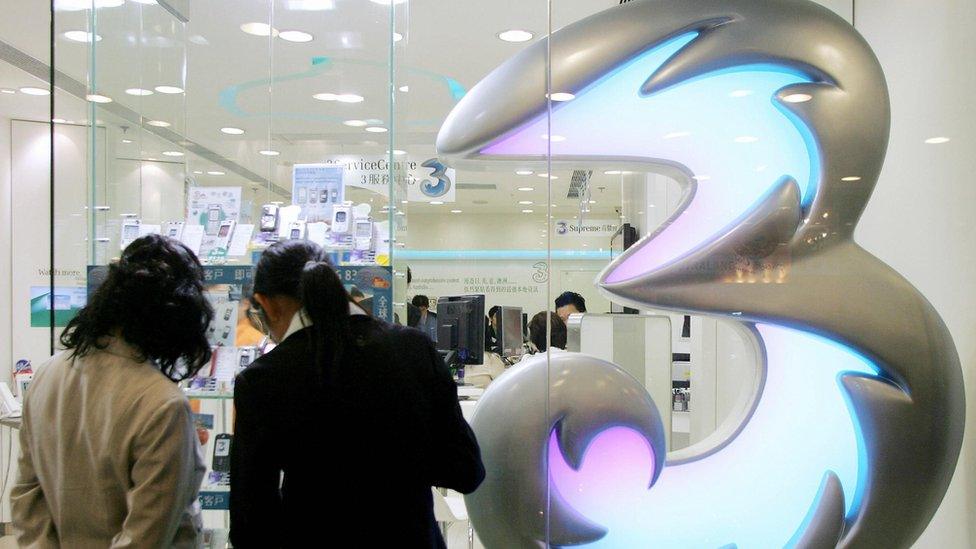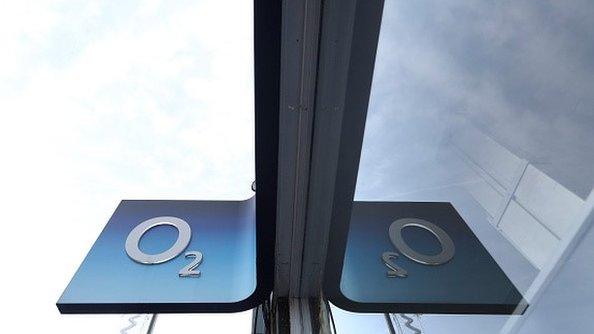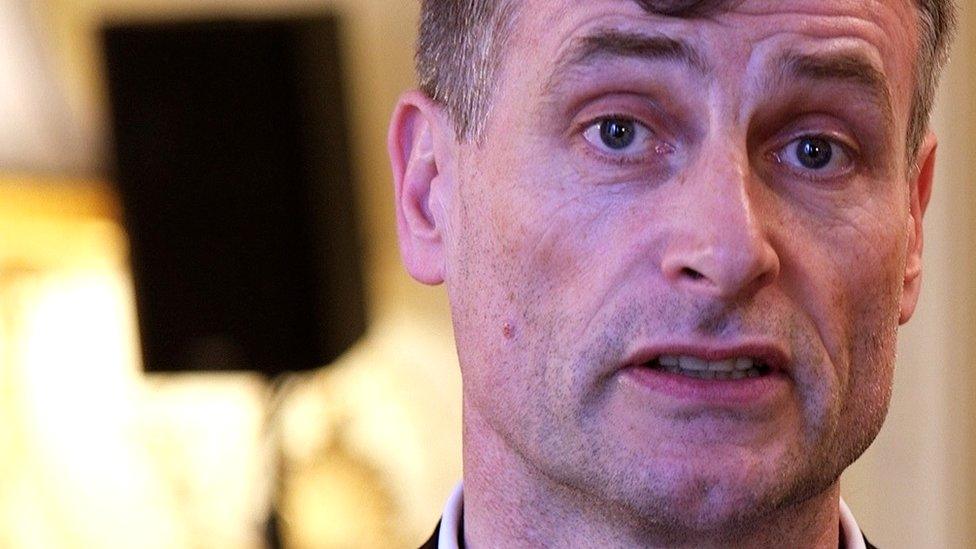EU blocks Three's takeover of O2
- Published

The European Commission has blocked Telefonica's sale of O2 to CK Hutchison, the owner of Three.
The planned deal was worth £10.3bn, and would have left the UK with just three major mobile phone network operators.
But Europe's competition commissioner, Margrethe Vestager, said she had strong concerns about the takeover, ruling that it would reduce customer choice and raise prices, external.
CK Hutchison said it was considering a legal challenge to the decision.
Concessions not 'sufficient'
"The goal of EU merger control is to ensure that tie-ups do not weaken competition at the expense of consumers and businesses," said Ms Vestager.
"We want the mobile telecoms sector to be competitive, so that consumers can enjoy innovative mobile services at fair prices and high network quality."
The decision ruled that concessions offered by Hong-Kong based Hutchison - including a five year price freeze and billions of pounds in investments - "were not sufficient to prevent" the hampering of innovation and network infrastructure development.
CK Hutchison responded to the decision, external, saying the acquisition of O2 from Spain's Telefonica would bring "major benefits to the UK not only by unlocking £10bn of private sector investment in the UK's digital infrastructure but also by addressing the country's coverage issues, enhancing network capacity, speeds and price competition for consumers".
O2 said the ruling had little impact on their UK operations. "We work in an industry of constant change and have learnt how to manage that change better than most," said an O2 spokesperson.
"Regardless of what happens next, we will continue to deliver for our customers as we always have."

Analysis: Rory Cellan-Jones, BBC Technology Editor
It was the deal that was supposed to be the final stage in the reshaping of Britain's mobile phone market. But now the O2/Three marriage has been blocked by Brussels, where does that leave phone users?
Better off, according to regulators. The UK's communications regulator Ofcom, in particular, had argued that allowing the number of players in the market to fall from four to three would inevitably lead to higher prices, poorer service or both.
This sounds convincing in the short term. But, says much of the telecoms industry - if you look at the longer term health of Europe's mobile market - today's move is bad news for everyone.
To read Rory's analysis in full, click here

Potential global interest
The commission points out that retail prices in the UK are currently amongst the lowest in Europe, with the four major network operators also including Vodafone and BT's Everything Everywhere, known as EE.
These four operators - who own infrastructure like telecoms masts - have cooperated to share the costs of developing that infrastructure. And it is the collapse of these cost-sharing deals that seriously worries the European commission.
Meanwhile Liberty Global - the owner of Virgin Media - has said it would not rule out an acquisition of O2 if CK Hutchison's bid was ultimately unsuccessful.
"It would be strange if we didn't evaluate that option," chief executive Mike Fries told analysts on a recent results conference call.
Liberty Global currently possesses a minimal share of the UK mobile market subsidiary Virgin, which acts as a so-called "virtual operator." That means it must pay wholesale prices to access the network operated by BT's EE. Tesco and Asda operate their own virtual networks in a similar manner.
Liberty Global recently ended negotiations for a major tie-up with Vodafone across Europe, settling simply for a Netherlands joint venture.

Competitive UK prices
Kester Mann, a mobile operators analyst at CCS Insight, said global telecoms giants like Japan's Softbank or Mexico's America Movil could also be plausible buyers of O2, but that the "most likely eventual outcome" was a sale to a private equity firm.
"The collapse of the deal leaves both Three and O2 in a precarious position with uncertain futures in the UK," Mr Mann said.
A spokesperson for the British telecoms regulator Ofcom said that it was the "right outcome" for mobile customers.
"Competition must be sustainable, and regulation should support it," said Ofcom. "We will aim to do so through tools such as market reviews or auctions of mobile airwaves."
The European Commission has intervened in several proposed telecoms deals recently.
A merger between the Danish operations of TeliaSonera and Telenor was abandoned last September after the commission investigated the deal.
And there is also an ongoing probe of CK Hutchison's proposed merger with Italian operator Wind, owned by Russian firm Vimpelcom, that would create Italy's largest mobile phone network.
- Published11 May 2016
- Published2 October 2015

- Published28 March 2016
